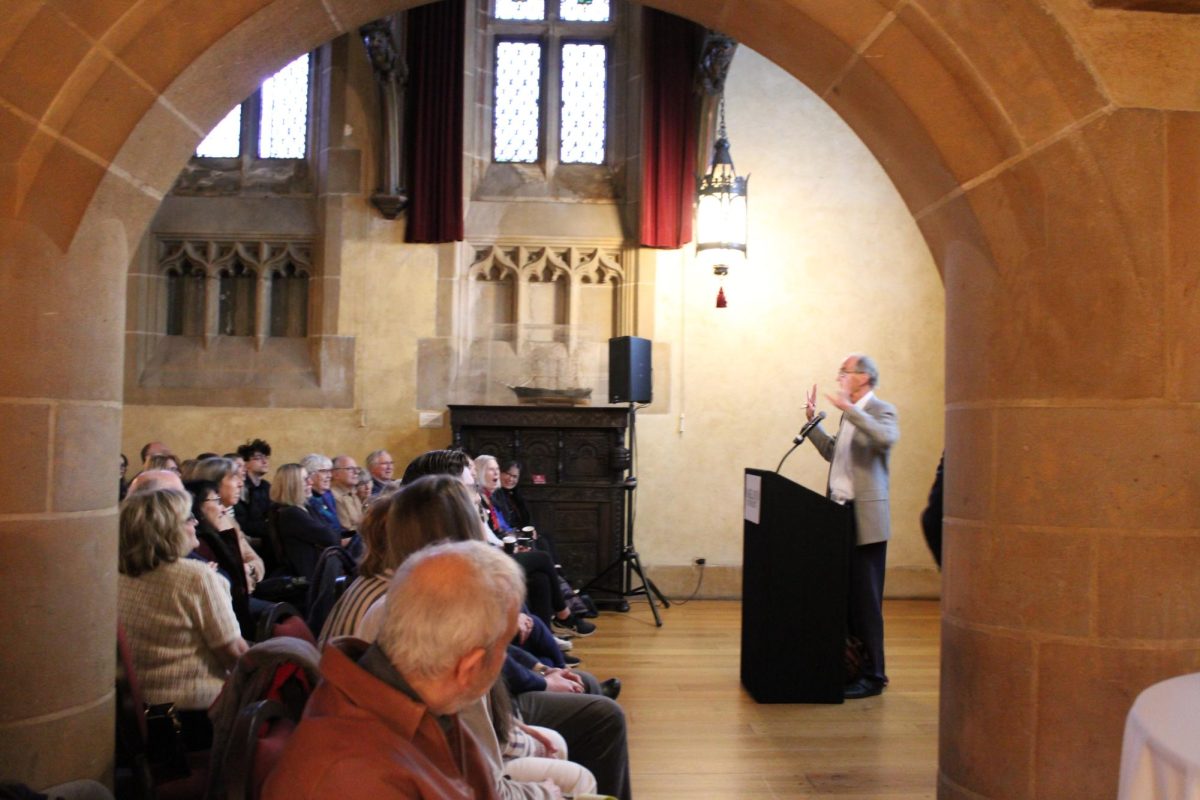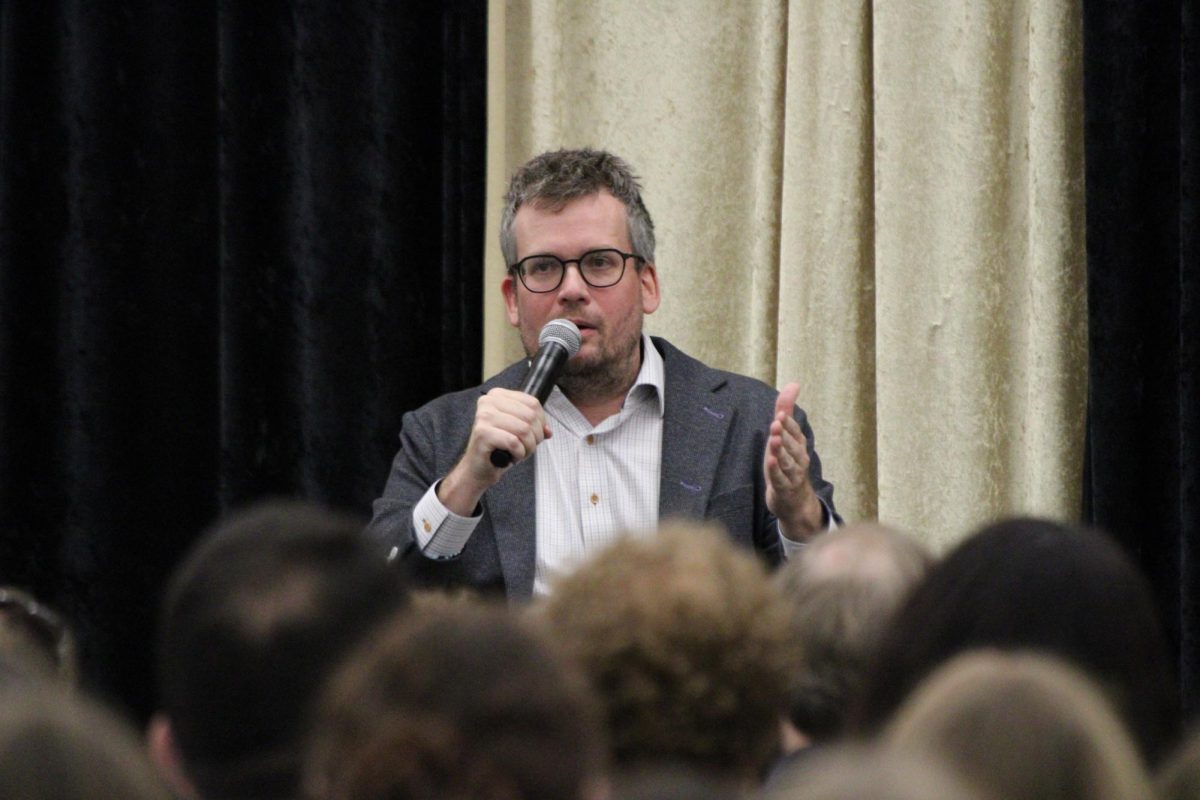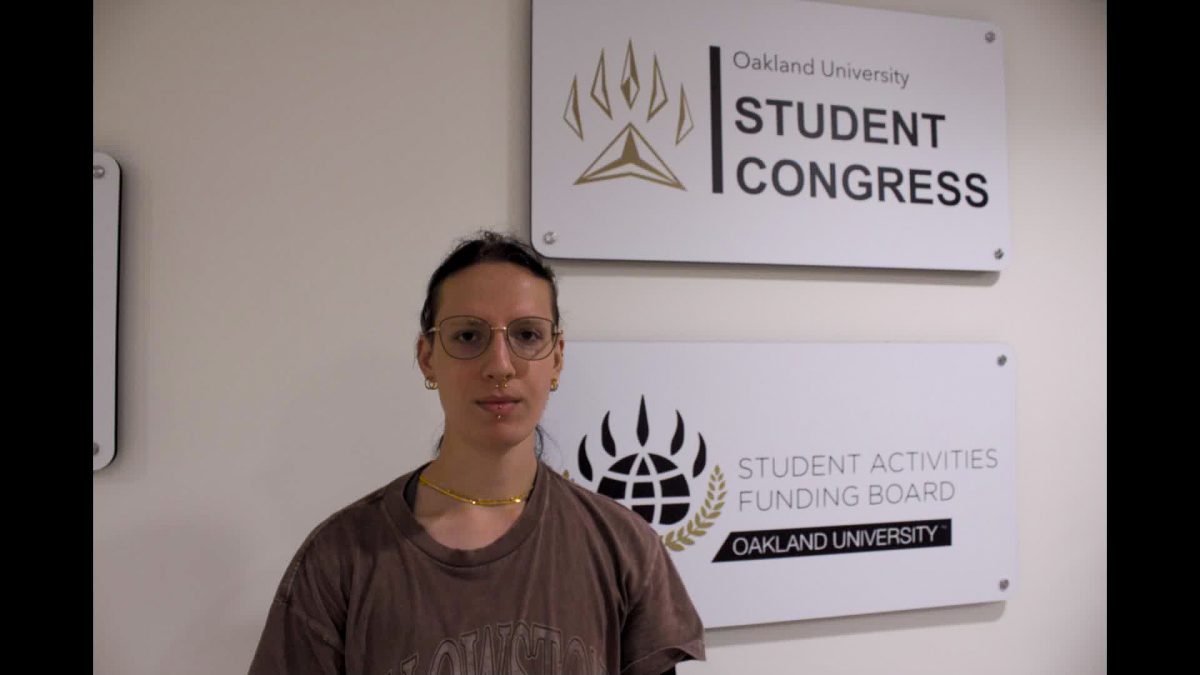On Mar. 26, Oakland’s Meadow Brook Hall hosted a presentation by Dr. Kurt Weyland regarding his 2024 book of “Democracy’s Resilience to Populism’s Threat.”
An early dinner was held for invited political science faculty and students. Then the event moved to a beautiful presentation room where refreshments and desserts were offered to the newly arrived attendees. The main event of Weyland’s presentation was held in under 90 minutes, where he was also able to take questions from the audience.
Weyland has “a Staatsexamen from Johannes-Gutenberg Universität Mainz in 1984, a M.A. from UT in 1986, and a Ph.D. from Stanford University in 1991,” his biography from the website of the University of Texas (UT) at Austin, where he currently teaches in the College of Liberal Arts, states.
An expert on various political topics, Weyland has focused his expertise on the governments and politics of South America and Europe. “He has drawn on a range of theoretical and methodological approaches, including insights from cognitive psychology, and has done extensive field research in Argentina, Bolivia, Brazil, Chile, Costa Rica, Peru, and Venezuela,” his UT biography states.
His latest book, which he published through the Cambridge University Press in January of 2024, “Counter Global Alarmism,” explores the question of whether democracies are truly in danger from populist regimes. Populism is a political science theory that correlates with the relationship of “the people vs the elites” in a society. It is often characterized by a charismatic leader that gains popular favor for their ideas and turns that influence into dismantling parts of government that represent democracy.
During his talk, Weyland discusses that states will be more likely to attract Populism when there are the right conjunctions that will mix with institutional issues. He provides three out of the 40 examples he discusses in his book, including examples from both Europe and South America. He presented his findings in a manner that held humor, terminology that was inclusive to the non-political science-oriented attendees and an easy-to-follow narrative structure.
He concluded his presentation by stating his final assessment of the state of populism in the world. He stated that though recent years there have been some worrisome populist regimes in the areas he has studied, many more have failed to obtain power than those that have, and that statistically, democracies have prevailed against populists regimes and have very rarely been destroyed. Therefore, the title of his book is more evident in that democracy has been resilient to populism in Latin American and European countries.
Attendees then proceeded to question Weyland on the current state of specific Latin states and the United States as well. Many inquiries were made about various countries that held populist candidates for recent elections and how President Donald Trump has faced similar accusations, to which Weyland relayed his professional opinions on how certain regimes may play out.
For more information on Weyland’s research about social policy and diffusion, read his book “Democracy’s Resilience to Populism’s Threat” or look into his various articles that discuss more concentrated information on specific countries of interest.







